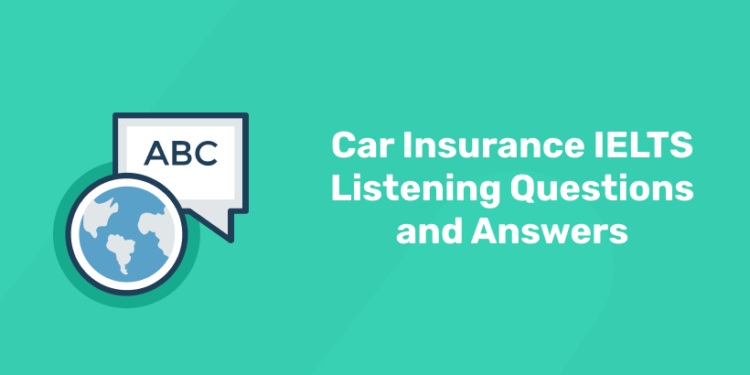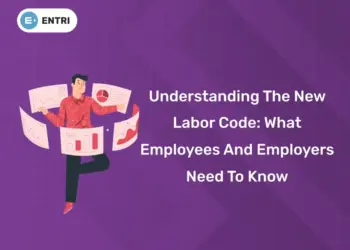The International English Language Testing System (IELTS) is one of the most widely accepted English language proficiency tests globally. It evaluates your ability to listen, read, write, and speak in English, particularly in academic and professional contexts. For many test-takers, the Listening section can pose significant challenges, particularly due to its focus on understanding spoken English in various accents and contexts. In this article we will discuss Car Insurance IELTS Listening Questions and Answers; as one of the recurring topics in the IELTS Listening test is related to car insurance.
In this blog, we’ll explore sample questions, discuss how to approach them, and provide useful tips for improving your listening skills. By the end, you will feel more prepared and confident in tackling these kinds of questions on test day.
Master the IELTS Exam with Online Coaching – Enroll Today!
Car Insurance IELTS Listening Questions and Answers
Understanding the IELTS Listening Section
The IELTS Listening test is a section of the International English Language Testing System (IELTS) exam, which assesses a candidate’s ability to understand spoken English in various contexts. It is the same for both the Academic and General Training versions of the IELTS.
The IELTS Listening section evaluates how well you can understand spoken English in different real-life contexts, from casual conversations to academic talks. The section has four recordings, each testing your ability to listen and respond accurately. These recordings can feature various accents, including British, Australian, New Zealand, and North American, to ensure that you can understand English spoken in diverse ways.
Structure of the IELTS Listening Test
- Total Time:
- You have 30 minutes to listen to the recordings and answer the questions.
- You get 10 additional minutes to transfer your answers to the answer sheet after listening.
- Number of Questions:
- There are a total of 40 questions spread across four sections.
- These questions cover a wide range of listening skills, such as identifying key information, understanding opinions, and interpreting specific details.
Types of Recordings
Each of the four sections involves a different kind of recording, exposing you to various real-world situations:
- Everyday Conversation (Two People)
- This section features a dialogue between two people in a casual setting.
- Example: A discussion about travel plans, shopping, or managing daily tasks.
- Tip: Pay attention to practical information like times, places, or opinions.
- Monologue in a Social Context
- This section involves one person speaking in a non-academic setting.
- Example: A talk about services in a local community, such as a speech about library hours or public transport.
- Tip: Focus on facts and specific details being described.
- Educational or Training Conversation (Up to Four People)
- Here, you’ll hear a group conversation, typically involving up to four people in an academic or training setting.
- Example: A professor and students discussing a class project or an assignment.
- Tip: Focus on identifying who is speaking and the roles they play in the conversation.
- Monologue on an Academic Topic
- In this section, you will hear a speaker giving a lecture or talk on a specific academic subject.
- Example: A university lecture about history, science, or social issues.
- Tip: Understand the main argument and important points mentioned in the lecture.
Question Types in the Listening Section
The IELTS Listening section includes different types of questions that test your listening skills in a variety of ways. Here’s a breakdown:
- Multiple-choice Questions
- You will be asked to choose the correct answer from several options based on what you hear.
- Tip: Listen carefully for specific details and eliminate incorrect options.
- Matching Information
- Match items from two lists (e.g., names with actions or locations).
- Tip: Pay attention to relationships or connections mentioned in the conversation.
- Sentence Completion
- Fill in the missing words in sentences based on the audio.
- Tip: Focus on the keywords or phrases that will complete the sentence logically.
- Short-answer Questions
- Provide a brief answer to a question using information from the recording.
- Tip: Keep your answers concise and accurate. Stick to the word limit given.
- Note, Summary, or Diagram Completion
- Complete notes, summaries, or diagrams with missing words.
- Tip: Listen for important facts or descriptions that match the information provided in the question.
- Form, Table, Flowchart, or Map Completion
- Fill in missing details in forms, tables, flowcharts, or maps.
- Tip: Pay attention to details such as dates, numbers, and locations to complete the answers correctly.
Scoring:
- The listening test is scored out of 40, and your raw score (the number of correct answers) is converted into the IELTS band score (1–9). Each correct answer earns one point. The band score reflects your listening ability, with 9 being the highest (expert user) and 1 being the lowest (non-user).
Skills Tested:
- Listening for gist: Understanding the main ideas.
- Listening for detail: Picking out specific pieces of information.
- Listening for opinions and attitudes: Identifying a speaker’s views or feelings.
- Understanding the structure: Recognizing how the information is organized.
Preparation Tips for IELTS Listening:
Focus on More than Just Vocabulary
While vocabulary is important, understanding the context of what you’re hearing is just as crucial. You’ll need to:
- Grasp the Main Ideas: What is the conversation or talk mainly about?
- Identify Key Details: Listen for specific information like numbers, places, or opinions.
- Interpret Meaning: Sometimes, you need to understand implied meanings or attitudes rather than just literal facts.
- Follow the Conversation Flow: Keep track of the conversation, even if multiple speakers are involved. Understand who is speaking and what their point is.
Applying These Skills to Car Insurance Topics
In a topic like car insurance, for example, you might hear a discussion about types of coverage, costs, or filing a claim. The same listening strategies apply:
- Identify the key terms like “comprehensive insurance,” “premium,” or “deductible.”
- Pay attention to details such as amounts, dates, or conditions.
- Understand the context of the discussion to better predict and identify the answers to the questions.
Master the IELTS Exam with Online Coaching – Enroll Today!
Sample Listening Passage on Car Insurance
Ace Your IELTS Exam with Confidence!
Unlock your potential with our expert-led IELTS preparation course. Achieve your dream score and open doors to global opportunities!
Start Your IELTS Journey Today!Frequently Asked Questions
What type of questions can I expect in the IELTS Listening section on car insurance?
You can expect various question types, including:
- Multiple Choice: You may have to choose the correct answer based on conversations about different types of car insurance.
- Short Answer Questions: You may need to answer brief questions about insurance costs or coverage.
- Sentence Completion: You might need to fill in the blanks with specific details about insurance policies.
- Form or Table Completion: You could be asked to fill in missing information on a car insurance policy or pricing chart.
What are the most common topics related to car insurance in IELTS Listening?
Common topics for car insurance-related listening passages include:
- Differences between comprehensive and third-party insurance.
- Costs of various insurance policies.
- What car insurance covers (accidents, fire, theft).
- Concepts like deductibles and no-claims bonuses.
- Discussion between an agent and a customer about choosing car insurance.
How can I prepare for car insurance topics in IELTS Listening?
Here are some ways to prepare:
- Familiarize yourself with insurance-related vocabulary such as “premium,” “deductible,” “coverage,” “third-party,” and “comprehensive.”
- Practice listening to real-life scenarios like insurance ads, customer service conversations, and informational talks about policies.
- Review past IELTS Listening papers that cover similar topics.
What should I listen for in car insurance conversations in IELTS Listening?
Focus on the following:
- Types of insurance policies (e.g., third-party, comprehensive, fire and theft).
- Costs and pricing differences between policies.
- What is covered and not covered by different insurance types.
- Deductibles and how they affect costs.
- No-claims bonuses and how they can lower insurance premiums.
What vocabulary is essential for understanding car insurance in IELTS Listening?
Key terms include:
- Premium: The amount you pay for insurance.
- Deductible: The amount you pay before the insurance covers costs.
- Third-party insurance: Insurance covering damage to others’ vehicles.
- Comprehensive insurance: Covers both your car and others in an accident.
- No-claims bonus: A discount for not making claims in previous years.
- Coverage: What is included in the insurance policy.
How can I improve my listening skills for car insurance topics?
- Listen to real-world scenarios involving insurance, such as YouTube videos about buying car insurance or podcasts on financial topics.
- Practice active listening by summarizing what you hear after short conversations about car insurance.
- Take notes while practicing to get better at extracting key information quickly.










